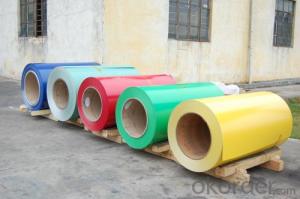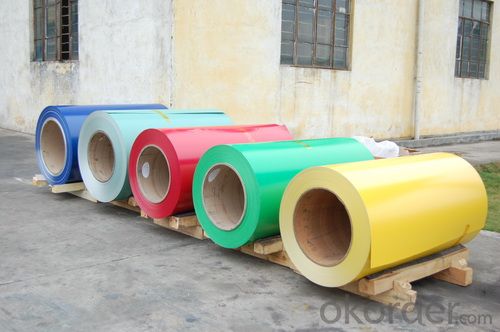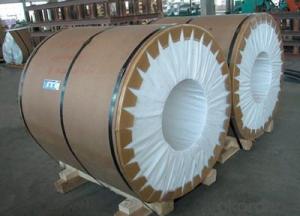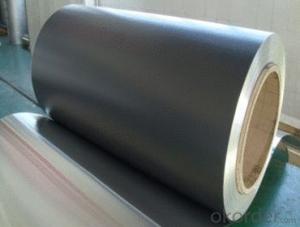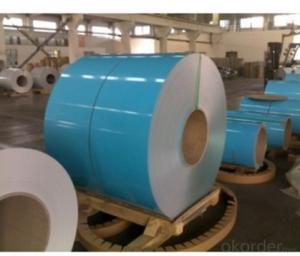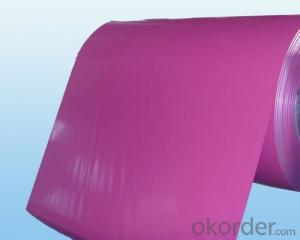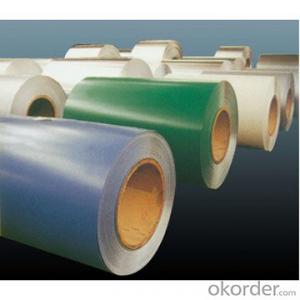Ams Aluminum Coil - Prepainted Aluminum Coil with Best Price and High Quality
- Loading Port:
- Shanghai
- Payment Terms:
- TT OR LC
- Min Order Qty:
- 5 m.t.
- Supply Capability:
- 2000 m.t./month
OKorder Service Pledge
OKorder Financial Service
You Might Also Like
Specification
Structure of Aluminium Coil Prepainted with Best Price and High Quality Description:
Coated aluminum coil/sheet are of a wide range of colors, which gives wonderful appearance no matter in residential and commercial constructions of great exhibition centers.
The coated aluminum coil/sheet have been widely used in the fields of construction and decoration( garage doors, ceiling etc.), electronic appliances, lighting decoration, air-condition air pipes, sandwich panels and drainages etc.
Main Features of the Aluminium Coil Prepainted with Best Price and High Quality:
1) High flexibility
2) Impact resistance
3) Excellent weather-proof durability
4) Anti-ultraviolet
5) High erosion resist
Images of the Aluminium Coil Prepainted with Best Price and High Quality:
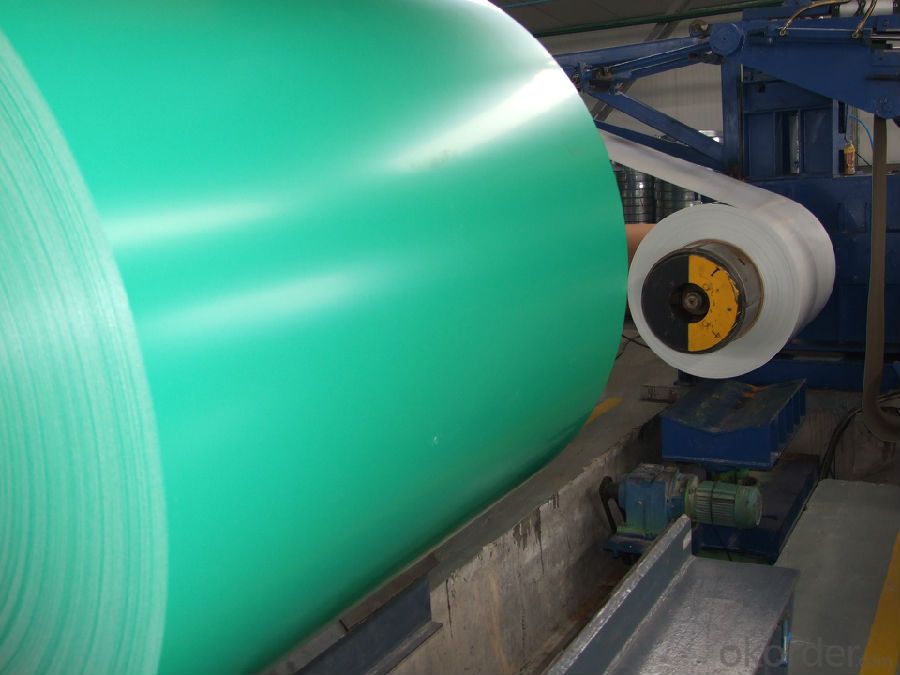
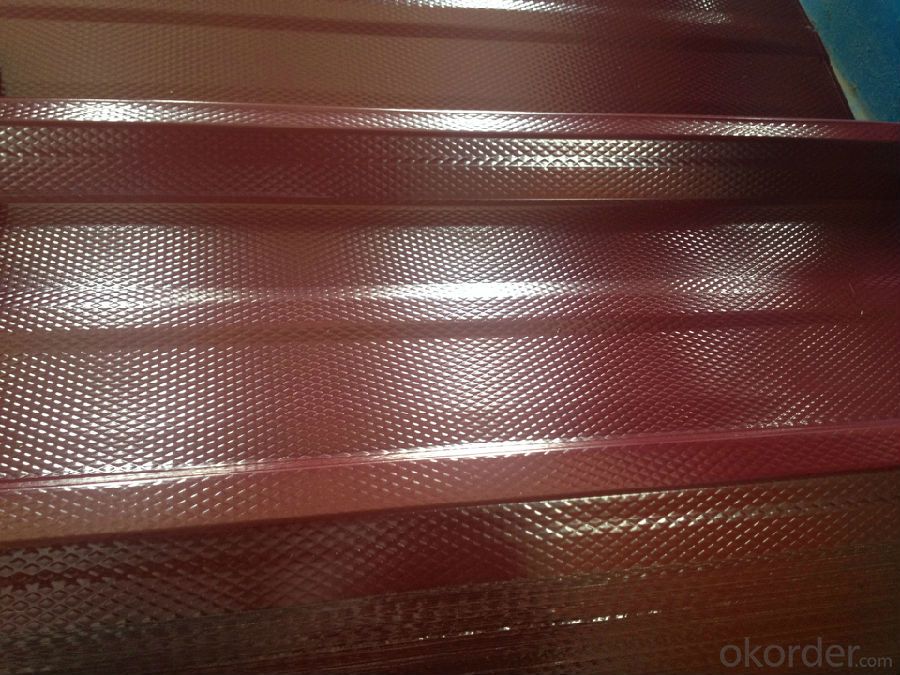
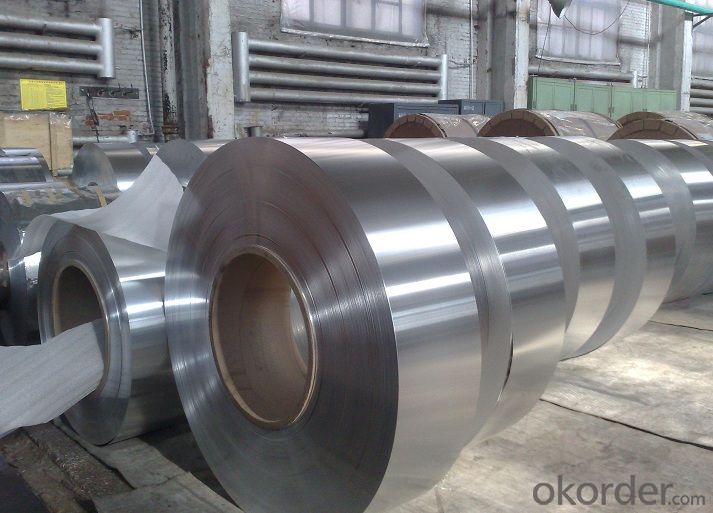
Aluminium Coil Prepainted with Best Price and High QualitySpecification:
Alloy | A1100,A3003,A1050,A8011 etc |
Temper | H16,H18,H24 |
Thickness | From 0.024mm to 1.2mm |
Width | Standard width:1240mm |
Special width:1300mm,1520mm,1570mm,1595mm | |
Diameter | Standard dia:1200mm |
Interior dia:150mm,405mm,505mm | |
Weight | 2.5 T/coil,3.0 T/coil |
Coating | PE, PVDF, AC |
Surface | Embossed, mill finish, coated |
Color | AS to code RAL |
Gloss | 10-90%(EN ISO-2813:1994) |
Coating Thickness | PE: more than 18 micron |
PVDF: more than 25 micron | |
Coating Hardness (pencil resistance) | More than 2h |
Coating adhesion | 5J(EN ISO-2409:1994) |
Impact Resistance | No peeling or cracking(50 kg/cm,ASTMD-2794:1993) |
Flexibility (T-bend) | 2T |
MEK resistance | More than 100 |
FAQ:
a.What is monthly capacity
---CNBM is one stated own company and our monthly capacity is about 2000tons.
b. Now which countries do you export your goods?
---Now we export to South East Asia,Africa, North America,South America ect.
- Q: What are the different slitting options for aluminum coils?
- Aluminum coils offer a variety of slitting options to meet specific requirements and end uses. The commonly employed choices for slitting aluminum coils are as follows: 1. Single Slit: The most fundamental and extensively utilized option involves cutting the aluminum coil into two narrower coils with a single cut at the center. 2. Double Slit: This option entails two parallel cuts along the center of the aluminum coil, resulting in smaller widths for each coil. 3. Multi-Slit: Multiple parallel cuts along the center of the aluminum coil allow for the creation of several narrower coils from a wider one. 4. Ribbon Slit: When the aluminum coil needs to be divided into very thin strips, like those used in electrical wiring or packaging, this slitting option is employed. 5. Oscillate Slit: This option suits applications that require varying widths of aluminum strips. The coil is slit in a back-and-forth motion, offering flexibility in producing different widths. 6. Custom Slitting: To accommodate specific project needs, custom slitting options can be employed. This involves tailoring the slitting process to achieve unique widths, lengths, or shapes of aluminum strips. When selecting the appropriate slitting option for aluminum coils, it is crucial to consider the desired application, required dimensions, and the capabilities of the slitting equipment.
- Q: What are the proper storage methods for keeping aluminum coil in good condition?
- <p>To store aluminum coil properly, ensure a clean, dry, and well-ventilated environment. Keep the coil away from moisture and direct sunlight to prevent oxidation and discoloration. Store coils horizontally on wooden pallets or racks to avoid deformation. Maintain a consistent temperature and avoid extreme fluctuations. Use protective coverings or wrapping to shield the coil from dust and contaminants. Regularly inspect the coils for any signs of damage or corrosion and address any issues promptly.</p>
- Q: What precautions should be taken while using tools for handling aluminum coils?
- <p>When handling aluminum coil tools, it's crucial to follow safety measures to prevent accidents. Always wear appropriate personal protective equipment (PPE) such as gloves, safety glasses, and closed-toe shoes. Ensure the tools are in good condition and well-maintained. Keep the work area clean and free of debris to avoid slips or trips. Be cautious of sharp edges on the aluminum coils, as they can cause cuts. Use lifting equipment when necessary and never attempt to lift heavy coils manually. Follow all manufacturer guidelines for the safe operation of the tools. Regularly inspect the tools for any signs of wear or damage and replace them as needed.</p>
- Q: What are the different tempers of aluminum coils?
- Different levels of hardness and strength can be achieved through various heat treatments for aluminum coils, resulting in different tempers. These tempers alter the physical and mechanical properties of the coils to suit specific applications. Aluminum coils can undergo different tempering processes to modify their properties. The most common tempers for aluminum coils are as follows: 1. O Temper (Soft): This represents the annealed state of aluminum, where the metal is fully soft and easily moldable. It has low strength but excellent ductility, making it suitable for applications that require extensive shaping or bending. 2. H14 Temper (Half Hard): This offers moderate strength and hardness, while still maintaining some formability. It is used in applications that require a balance between strength and flexibility, such as roofing or cladding. 3. H18 Temper (Hard): This provides high strength and hardness, with reduced formability. It is commonly used in applications that demand structural integrity and resistance to deformation, such as automotive parts or industrial equipment. 4. H22, H24, H26 Temper (Extra Hard): These tempers are achieved through additional cold working or strain hardening processes. They offer even higher strength and hardness but sacrifice some ductility. They are often used in applications that require enhanced mechanical properties, such as aerospace components or high-stress structural parts. 5. T Temper (Tension Leveled): This involves stretching the aluminum coil beyond its elastic limit and then stabilizing it. It helps eliminate internal stresses and improve flatness, making it suitable for applications that demand precise dimensional stability, such as electronic devices or architectural panels. It's important to note that there are many other tempers available for aluminum coils, each designed to meet specific requirements. The choice of temper depends on factors such as the intended application, desired mechanical properties, and processing capabilities.
- Q: How do aluminum coils contribute to lightweight vehicle design?
- Aluminum coils play a crucial role in achieving lightweight vehicle designs due to their unique properties and manufacturing processes. Aluminum is a lightweight material itself, weighing about one-third of the weight of steel, making it an ideal choice for lightweight vehicle design. When aluminum is formed into coils, it provides several benefits that contribute to the overall weight reduction of the vehicle. Firstly, aluminum coils are highly formable, allowing complex shapes to be achieved using less material. This property enables automakers to design intricate body panels and structural components that are not only lightweight but also offer improved aerodynamics and fuel efficiency. The ability to form aluminum coils into intricate shapes also allows for increased design flexibility, leading to more innovative and visually appealing vehicle designs. Secondly, aluminum coils offer exceptional strength-to-weight ratio, making them an excellent choice for structural components. Despite being lightweight, aluminum coils provide excellent structural integrity, ensuring the vehicle's safety and durability. By incorporating aluminum coils into the vehicle's chassis, suspension systems, and other critical components, automakers can reduce weight while maintaining the necessary strength and rigidity required for safe operation. Furthermore, aluminum coils have excellent corrosion resistance, which is essential for the longevity of the vehicle. Corrosion can significantly impact a vehicle's structural integrity and overall performance. By using aluminum coils, automakers can reduce the risk of corrosion-related issues, leading to longer lifespan and reduced maintenance costs. Lastly, the use of aluminum coils helps in reducing the overall weight of the vehicle, resulting in improved fuel efficiency and reduced greenhouse gas emissions. Lighter vehicles require less energy to accelerate and maintain speed, leading to better fuel economy. This benefit is increasingly important as the automotive industry focuses on developing more sustainable and eco-friendly vehicles. In conclusion, aluminum coils contribute significantly to lightweight vehicle design by offering high formability, exceptional strength-to-weight ratio, corrosion resistance, and overall weight reduction. These properties enable automakers to design vehicles that are not only lighter but also safer, more fuel-efficient, and visually appealing. As the demand for lightweight vehicles increases, aluminum coils play a vital role in achieving these design goals.
- Q: Can aluminum coils be used in high-magnetic field applications?
- No, aluminum coils are not suitable for high-magnetic field applications since aluminum is not magnetic and cannot effectively interact with magnetic fields.
- Q: How do aluminum coils withstand extreme weather conditions?
- Due to the unique properties of aluminum, aluminum coils can endure harsh weather conditions. Firstly, aluminum's lightweight nature allows it to remain flexible and resistant to bending or warping when faced with strong winds or heavy snow loads. As a result, aluminum coils are less likely to be damaged during extreme weather events like hurricanes or blizzards. Moreover, aluminum possesses a high resistance to corrosion. When exposed to air, it forms a protective oxide layer on its surface, preventing rusting or deterioration caused by moisture or severe weather conditions. This protective layer acts as a barrier against elements such as rain, snow, or saltwater, making aluminum coils highly durable and long-lasting. Additionally, aluminum exhibits high thermal conductivity, enabling it to efficiently dissipate heat. This property ensures that aluminum coils effectively transfer heat away from the system, preventing overheating and potential damage during hot weather conditions. Furthermore, the efficient dissipation of heat contributes to the energy efficiency of aluminum coils. Lastly, aluminum is a non-magnetic material, rendering it unaffected by electromagnetic interference or lightning strikes. This quality makes aluminum coils safe and dependable in areas prone to electrical storms or high levels of electromagnetic activity. To summarize, aluminum coils are designed to endure extreme weather conditions due to their lightweight, corrosion-resistant, thermally conductive, and non-magnetic properties. These characteristics make aluminum coils highly durable, dependable, and suitable for various applications, including HVAC systems, automotive cooling, and electrical wiring.
- Q: I am looking for a deoderant that doesn't contain aluminum that actually works. I have tried Tom's natural deoderant and didn't get to use it long enough to see if it worked because it really irritated my skin and caused it to burn and peel. I have also tried the one made by Adidas and it seemed to work pretty well through the winter months, but now that it is getting warm again I'm noticing that it isn't quite doing the job anymore.
- aluminum zirconium is the chemical that makes you stop sweating, not that it works on most people. they can only put a certain percentage of it in deodorants, try the degree clinical, i just started using it and it seems to be doing okay, good luck i know what you are going through.
- Q: What is the fatigue strength of aluminum coils?
- The fatigue strength of aluminum coils refers to the maximum stress level that the coils can withstand without experiencing failure or damage due to repeated or cyclic loading over time.
- Q: What are the weight considerations when using aluminum coils?
- When using aluminum coils, weight considerations primarily involve the overall weight of the coils themselves and the impact it may have on transportation, installation, and structural support systems. Aluminum coils are preferred in various industries due to their lightweight nature, which enables easier handling and reduces the load on infrastructure. However, it is important to ensure that the weight of the coils aligns with the intended application and the capacity of the supporting structures. Additionally, factors such as coil thickness, width, and length should also be taken into account to determine the appropriate weight considerations when using aluminum coils.
Send your message to us
Ams Aluminum Coil - Prepainted Aluminum Coil with Best Price and High Quality
- Loading Port:
- Shanghai
- Payment Terms:
- TT OR LC
- Min Order Qty:
- 5 m.t.
- Supply Capability:
- 2000 m.t./month
OKorder Service Pledge
OKorder Financial Service
Similar products
Hot products
Hot Searches
Related keywords
